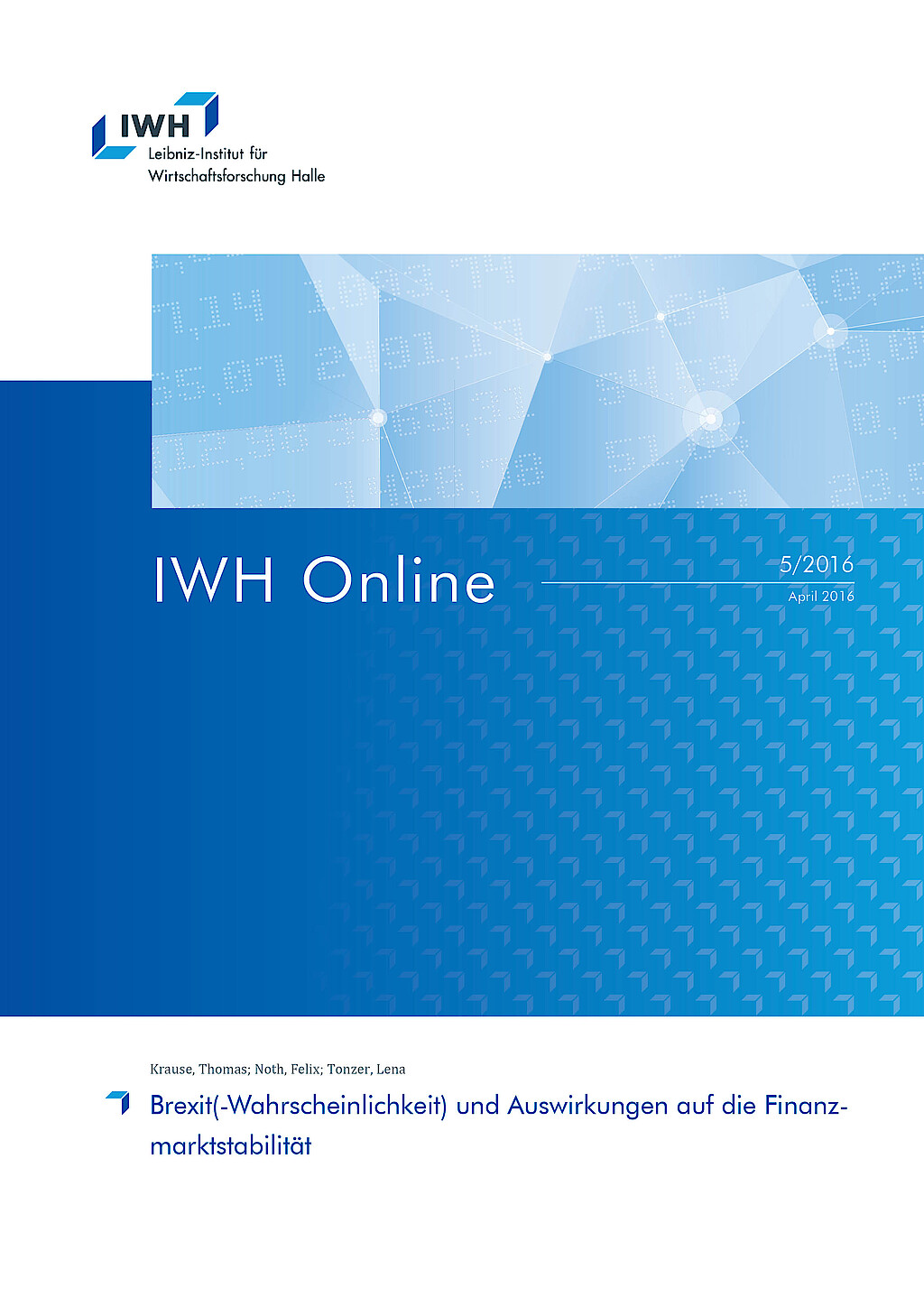German Households Benefit from Low Interest Environment
Whom to contact
For Researchers

President
If you have any further questions please contact me.
+49 345 7753-700 Request per E-MailFor Journalists

Internal and External Communications
If you have any further questions please contact me.
+49 345 7753-720 Request per E-MailIWH list of experts
The IWH list of experts provides an overview of IWH research topics and the researchers and scientists in these areas. The relevant experts for the topics listed there can be reached for questions as usual through the IWH Press Office.
Related Publications

“The German Saver” and the Low Policy Rate Environment
in: IWH Online, 9, 2015
Abstract
It is widely claimed that “the German saver” suffers (i.e. generates significantly lower returns on her savings) in the low interest environment that Germany currently experiences relative to a high interest rate environment. With “low interest rate environment”, the observers tend to mean “low policy rates”, i.e. the European Central Bank’s (ECB) main refinancing rate.



